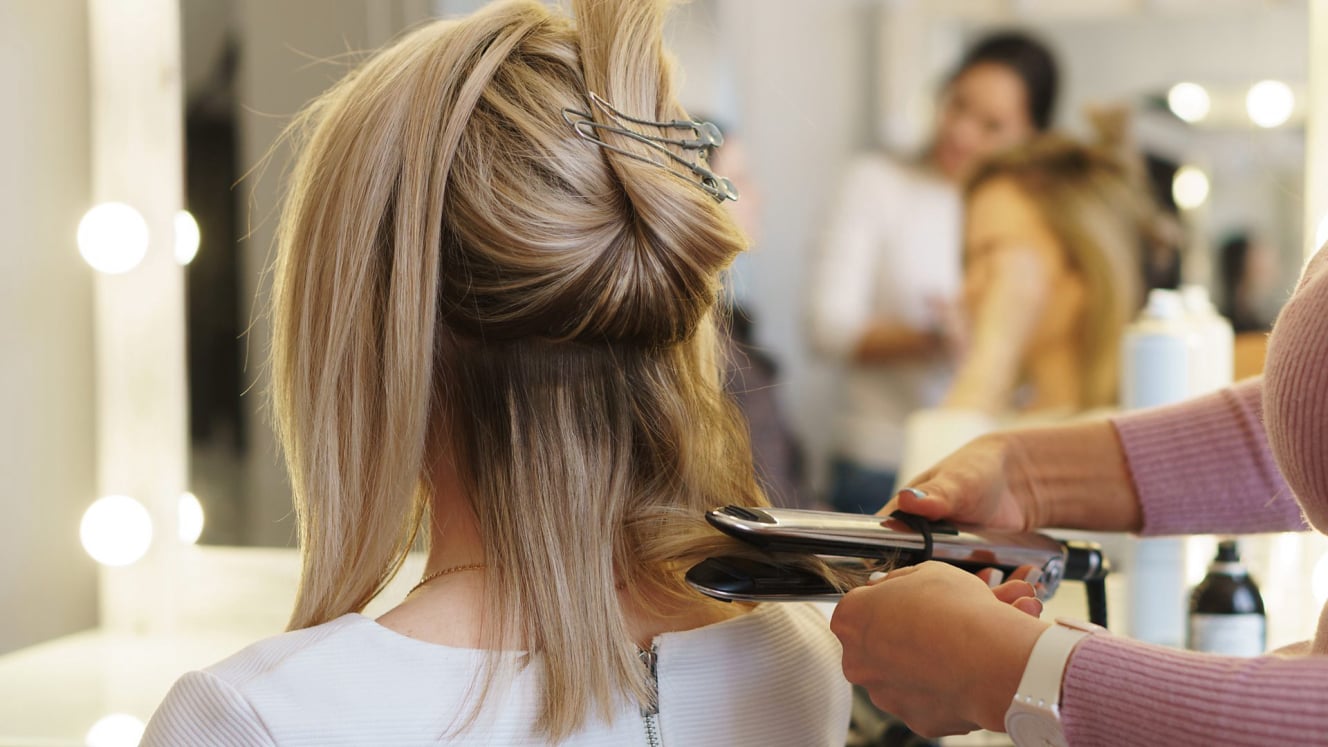Types of Hair Extensions and Their Lifespan
There are various types of hair extensions, each with its own unique lifespan. The main factors that determine how long your hair extensions will last include the
type of extensions, how well they are maintained, and your lifestyle.
Clip-in Hair Extensions
Clip-in extensions are temporary, meaning you can remove them daily or as needed. If cared for properly, clip-ins can last anywhere from 6 months to a year. However, they’re not meant for long-term wear, so be sure to remove them before bed and avoid excessive heat styling.
Tape-in Hair Extensions
Tape-in extensions are semi-permanent, typically lasting 6-8 weeks. This is because the adhesive that bonds the tape to your natural hair starts to lose its grip as your hair grows. With proper maintenance, like regular shampooing and gentle brushing, these extensions can last several cycles before needing to be replaced or reapplied.
Fusion Hair Extensions
Fusion hair extensions are applied with keratin bonds and are one of the longest-lasting types of extensions. They can stay in for up to 4-6 months, depending on your hair growth. As your natural hair grows, the bonds may begin to shift, requiring re-taping or reapplication to ensure your extensions remain securely in place.
Sew-in or Weave Hair Extensions
Sew-in extensions, or weaves, are popular for those with thicker hair. They last about 6-8 weeks, with some users needing a touch-up as their hair grows. Like tape-ins, sew-ins may require periodic maintenance, but they tend to be more durable for those who want longer-lasting, semi-permanent options.
Factors That Affect the Longevity of Hair Extensions
While the type of extensions you choose plays a major role in their lifespan, several other factors can impact how long your extensions last. Here are a few important considerations:
Hair Care Routine
The key to maintaining the life of your extensions is proper hair care. This includes regular washing with sulfate-free shampoos, using the right conditioners, and keeping hair hydrated. For those with extensions, using a leave-in conditioner and detangling spray is recommended to keep hair smooth and prevent damage.
Heat Styling
Excessive heat can cause wear and tear on hair extensions, especially those made from synthetic fibers. While natural, human hair extensions can handle heat better, they still need some extra care. Be sure to use a heat protectant spray before styling with hot tools, and try to avoid applying too much heat too often.
Sleeping Habits
To keep your extensions in top condition, avoid rough sleeping conditions. Sleeping with your hair loose can cause tangling and unnecessary stress on your extensions. Use a silk or satin pillowcase, and consider braiding your hair loosely before bed to minimize friction and prevent hair breakage.
Lifestyle Factors
Your lifestyle can also play a role in how long your extensions last. If you're swimming frequently or exposing your hair to harsh elements, the longevity of your extensions may decrease. Always protect your hair from chlorine, saltwater, and environmental pollutants to maintain their quality.
How to Maintain the Health of Your Hair Extensions
Taking care of your extensions will not only make them last longer, but it will also keep them looking vibrant and natural. Here are a few essential tips for maintaining the health and longevity of your Lexington KY hair extensions:
Brush Regularly: Use a wide-tooth comb or extension-specific brush to gently detangle your hair, starting from the tips and working your way up to avoid pulling.
Avoid Over-Washing: Washing your hair too often can strip away essential oils, leaving extensions dry and brittle. Wash your hair 2-3 times a week or as needed, depending on your lifestyle.
Hydrate: Use deep conditioning treatments once a week to replenish moisture and keep both your natural hair and extensions healthy.
Touch-ups: Regularly visit your stylist for maintenance appointments. They can check the condition of your extensions and reapply or reposition them as needed.
When to Replace Your Hair Extensions
While proper care can extend the life of your extensions, there comes a point when they need to be replaced. If you notice tangling, shedding, or thinning, it's time to consider new extensions. Regular maintenance with your stylist will help you assess when it's time for a fresh set.
